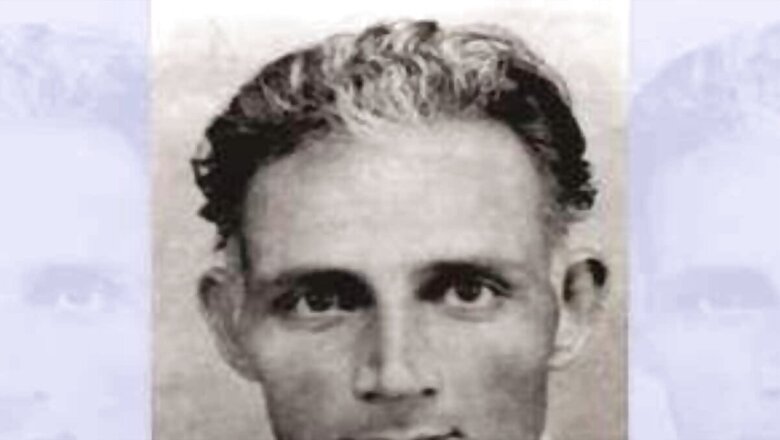
views
On September 11, 1964, Hindi writer Gajanan Madhav Muktibodh left a significant void in the cultural life of the country. His death, and the life he lived, shocked intellectuals and the public alike. How could such an intense and committed writer die without getting his due? Despite his poems being widely published in contemporary journals, he never saw a poetry collection in his name during his lifetime. All his years of struggle, sacrifice, and idealism suddenly crystallised in the months leading to his death, marking him as an intellectual stalwart.
He was being projected as a writer of protest who never compromised his principles and, in fact, viewed those chasing position and wealth with contempt. It was as if sensitive and aware writers in the post-colonial period felt responsible for his plight, as if the lie of an egalitarian society had been exposed. As news of his illness spread among intellectuals in 1964, renowned writers such as Harishankar Parsai and Raghuvir Sahay frantically tried to save him, approaching then Prime Minister Lal Bahadur Shastri to intervene and bring him to Delhi for medical treatment.
That year, 1964, also witnessed the death of Nehru, bringing an end to the Nehruvian era of socialism. Seminal poets like Shamsher Bahadur Singh and Shrikant Verma worked tirelessly to publish Muktibodh’s first collection of poems while he was still in a coma—one from which he would never awaken. He passed away while the book was still in print.
M.F. Husain, the renowned artist, decided upon Muktibodh’s death to remain barefoot for the rest of his life—a remarkable expression of solidarity and shared pain. After walking back from Muktibodh’s funeral, he took off his shoes and never wore them again. While many know that Husain walked barefoot, few are aware of the reason behind it.
Muktibodh’s life was nothing short of what we might call trauma today. He possessed a Dostoevskian depth of feeling and suffering. Reading his letters to friends about his economic privation, oppressive family ties, and personal failures is like entering a cold, disturbing space of one’s own mind. He was horrified by his own prospects and humorously compared himself to Stepan Petrovich from Dostoevsky’s The Possessed. It was dark humour, but for him, it was also a reflection of his reality.
Hardly surprising, then, that his struggles took a toll on him, and at the age of 47, he was admitted to the hospital for a brain tumour. During his hospitalisation, Muktibodh experienced visions, though these were not delusions—they were more metaphorical than real, rooted in the years of India’s version of McCarthyism in the 1950s when progressive and communist writers were hunted by authorities. During this phase, he had the courage to project the violence meted out to writers like him, as expressed in his celebrated poem Andhere Mein (In the Dark), where he created an atmosphere of apprehension and misgiving, experienced by a sensitive individual who refused to accept the logic of opportunism and self-aggrandisement. He wrote in the poem: “I have been held captive / in the dark and sentenced to death / The black dash strip is tied around my eyes / I have been hung on the peg of a standing charpoy leg / I’ve been pushed into the dark.”
Muktibodh pointed at a shift that occurred at a tectonic level in the cultural imagination of the country. He observed that the messiahs of yesterday had turned into oppressors, and litterateurs and leaders had lost touch with the masses. This, perhaps, was the irony of post-independence India—the vision of the national movement went in one direction and its implementation in another. What choice existed for a writer at such a time? For Muktibodh, the issues had become more complex and challenging, and the task of the writer more daunting. What was gained in the name of freedom in 1947 turned out to be an unfinished task. By the 1960s, literature had fallen into the hands of modernists and aestheticists.
Writers had abdicated progressive thought for the sake of the ‘new’ in literature, even as Muktibodh brilliantly reworked the concept of the ‘new’ in his critical writings. He drew young writers—Shrikant Verma comes to mind—away from cynicism, reminding them of the forces they still had to contend with. Interestingly, Muktibodh’s poetry resonated during the years of Emergency for its prophetic quality.
Richa Bajaj, PhD, teaches English Literature at Hindu College, University of Delhi and has co-authored the book Muktibodh in Our Time (2012), a critical study of the Hindi poet Gajanan Madhav Muktibodh. Views expressed in the above piece are personal and solely that of the author. They do not necessarily reflect News18’s views.




















Comments
0 comment